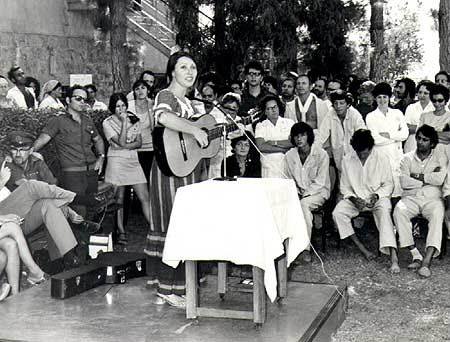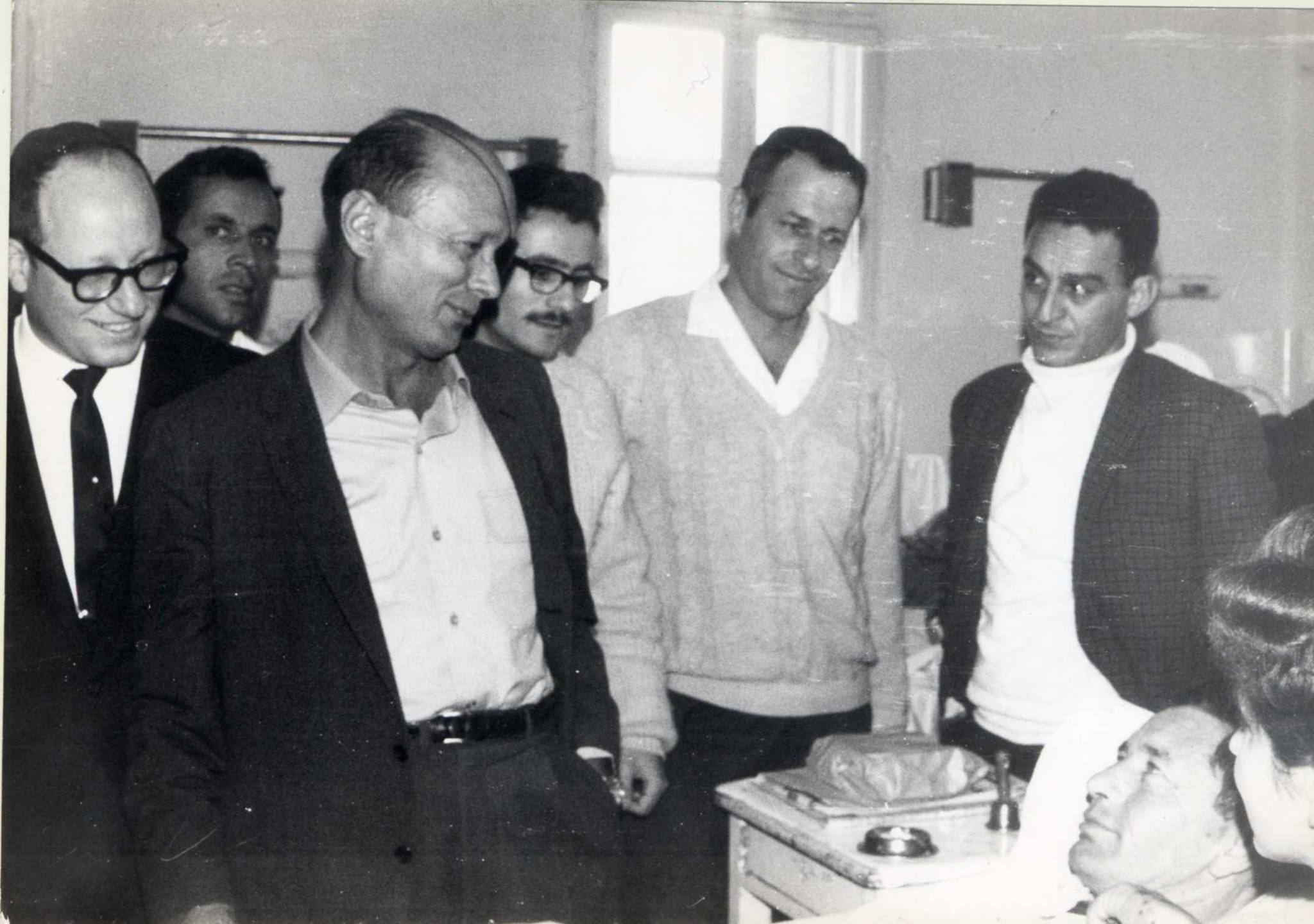Jerusalem’s Shaare Zedek Medical Centre has cared for patients from all religions, races and backgrounds for 115 years with life- saving medicine and cutting edge research. To commemorate Jerusalem Day we reflect on the never-to-be forgotten summer of 1967, when our Hospital was literally operating at the heart of the city facing its biggest existential threat.
Sara Abromovich, a volunteer at Shaare Zedek during the Six Day War remembers the fraught build-up to the War.
“For about three weeks the State of Israel was on hold. Everyone was waiting for a possible war to break out. Every house that didn’t have a bunker nearby dug one up in the garden, so they could hide if war broke out.
Sand bags were at the entrance to every building, and when done protecting their homes, children and women went to “Bikur Cholim” and “Shaare Zedek” to help prepare and safe guard the hospitals that would be in the line of fire. I remember sticking duck-tape on the windows of “Shaare Zedek” to protect the windows from shattering for when the Hospital would be bombarded. We were waiting for war to break out.”
 Shuli Natan singing ‘Yerusalayim Shel Zahav’
Shuli Natan singing ‘Yerusalayim Shel Zahav’
In the early hours of Monday June 5th 1967 the waiting period was over. The “military red line” rang the Hospital and the coded “State of Emergency” had been activated and well-oiled volunteer plans were set in train. Doctors and administrative staff soon arrived, led by Dr Falk Schlesinger, the Hospital’s then Director General.
The Hospital’s main corridors were soon lined with extra beds and stretchers. Non-emergency patients were soon evacuated to create vital space, and the nursing school and staff dormitories were converted into emergency wards. Within two hours the Military Hospital was alive and kicking.
Volunteers were vital. Yeshiva students, some from America and England, heaved heavy sacks, filled with sands, into the window frames. A headmaster of a local girls’ school helped a Rabbi carry in the wounded.
 Moshe Dayan visiting the wounded
Moshe Dayan visiting the wounded
A retired blood lab technician remembered: “There were so many miracles. A shell hit outside of the baby nursery and exploded but no one was injured. A second shell came into the attic of the hospital but it did not explode. You cannot imagine what it was like … there were so many wounded, so many things were makeshift and we had no idea what was happening with our families.”
Although the conditions were very challenging, doctors, nurses and volunteers stayed in the Hospital throughout the war and worked around the clock to save hundreds of lives. For 70 hours the Hospital’s surgeons worked non-stop, aided by exemplary and brave volunteers and the heroic energy and skill of the medical staff. The Hospital treated 450 wounded soldiers, performing 210 operations. After the war, Shaare Zedek was lauded by authorities for its lifesaving treatment.
Located in the heart of Jerusalem, Shaare Zedek has continued to play an important role in the life of the city and its diverse population. On hundreds of occasions since August 2015, ambulance crews have alerted the emergency room staff that a victim of a terrorist attack is on the way in. The clock begins ticking and the Shock and Trauma Unit begins to marshal its resources. In minutes, all necessary equipment and supplies are at ready including units of blood and blood products for transfusion, and a team of doctors, nurses and other staff, who vary, according to the nature of the incoming patient’s injuries.
Tragically, this scenario has been replayed over 300 times in the past 22 months. The victims of stabbings, shootings and deliberate ramming of vehicles have included men, women and children — soldiers, expectant mothers, sabras, olim and Arabs.